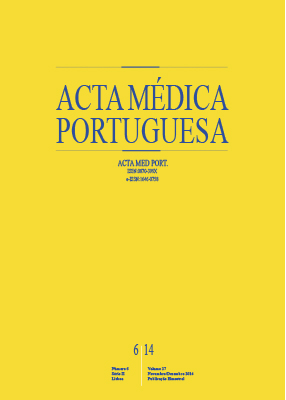Licit and Ilicit Uses of Medicines
DOI:
https://doi.org/10.20344/amp.5215Abstract
Drugs of abuse are a heterogeneous group of xenobiotics or endobiotics that alter synaptic organization in the central nervous system in a transient or permanent basis, often leading to a compulsively use. What unites its members is that they confer pleasure (hedonism) to the abusers, namely by their action in the mesolimbic dopamine system. To exert its effects, different drugs of abuse will act on receptors and neurotransmitter transporters, modeling neurotransmitter release into the synaptic cleft. Besides acting on presynapticneurons also function in neurotransmitter receptors and ion channels in postsynaptic neurons, thereby modifying the signaling pathways. In this work, the pharmacodynamic and the potential of some psychoactive substances that are typically subjected to abuse in Portugal, is reviewed. With this approach it was also possible a discussion of drugs of abuse that exhibit very different toxicological effects such as stimulants, depressants and hallucinogens. Particularly, the potential to induce dependence and addition, as well as to undergo illicit and licit uses, of central nervous system depressants, stimulants, anticholinergic antiparkinson drugs, opioids, cannabinoids and hallucinogens, is discussed.
Keywords: Antiparkinson Agents; Central Nervous System Depressants; Cholinergic Antagonists; Analgesics, Opioid; Hallucinogens; Central Nervous System Stimulants.
Downloads
Downloads
Published
How to Cite
Issue
Section
License
All the articles published in the AMP are open access and comply with the requirements of funding agencies or academic institutions. The AMP is governed by the terms of the Creative Commons ‘Attribution – Non-Commercial Use - (CC-BY-NC)’ license, regarding the use by third parties.
It is the author’s responsibility to obtain approval for the reproduction of figures, tables, etc. from other publications.
Upon acceptance of an article for publication, the authors will be asked to complete the ICMJE “Copyright Liability and Copyright Sharing Statement “(http://www.actamedicaportuguesa.com/info/AMP-NormasPublicacao.pdf) and the “Declaration of Potential Conflicts of Interest” (http:// www.icmje.org/conflicts-of-interest). An e-mail will be sent to the corresponding author to acknowledge receipt of the manuscript.
After publication, the authors are authorised to make their articles available in repositories of their institutions of origin, as long as they always mention where they were published and according to the Creative Commons license.









